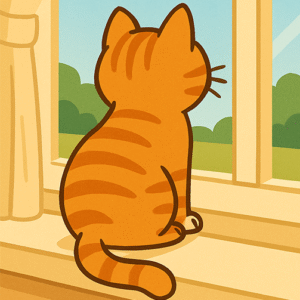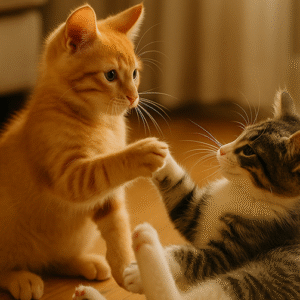Few things are more frustrating than discovering that our beloved feline friends have decided to use our belongings as their personal litter boxes. Dealing with a cat who pees on things can be a messy and unpleasant experience. However, it’s important to understand that this behavior is not done out of spite or to purposely annoy us. There are several reasons why cats may engage in this behavior, ranging from medical issues to stress and territorial marking. In this comprehensive guide, we will delve into the various reasons why cats pee on things and provide practical tips and strategies to help you stop this behavior and maintain a clean and odor-free home. Whether you’re a first-time cat owner or have been dealing with this issue for a while, this article will provide you with the knowledge and tools you need to solve this problem and restore harmony in your home.
1. Understanding the reasons why cats pee on things
If you’ve ever owned a cat, chances are you’ve encountered the frustrating issue of finding your furry friend peeing on things that they shouldn’t. From clothes to furniture, the list of potential targets seems endless. But why do cats engage in this behavior, and how can you put a stop to it?
Firstly, it’s important to understand that cats are naturally clean animals. They have an instinctual need to keep their living space clean and free from any odors. So, when a cat starts urinating outside of their litter box, it’s often a sign that something is amiss.
One common reason for this behavior is a medical issue. Cats, especially older ones, may develop urinary tract infections or kidney problems that cause them to feel discomfort or pain while urinating. In such cases, they may associate their litter box with pain and seek out alternative spots to relieve themselves. If you suspect a medical issue, it’s crucial to consult with a veterinarian to rule out any underlying health problems.
Another reason for inappropriate urination is stress or anxiety. Cats are sensitive creatures, and changes in their environment or routine can trigger stress. This stress could be caused by a new pet in the household, a move to a new home, or even changes in their litter box setup. In response to stress, cats may mark their territory by urinating on objects to assert their presence and alleviate their anxiety.
Additionally, cats are known to be highly territorial animals. They may urinate on items to establish their scent and mark their territory, especially if they perceive a threat from other animals or even unfamiliar human scents. This behavior is more common in unneutered or unspayed cats, as hormones play a significant role in their territorial instincts.
To address the issue of inappropriate urination, it’s crucial to identify and address the underlying cause. If it’s a medical issue, appropriate treatment from a veterinarian is essential. If stress or anxiety is the culprit, creating a calm and secure environment for your cat becomes crucial. This may involve providing them with a dedicated space, ensuring a consistent routine, and introducing stress-relieving measures such as interactive toys or pheromone diffusers.
Furthermore, maintaining a clean litter box is of utmost importance. Cats can be finicky about their bathroom habits, and an unclean or improperly placed litter box can deter them from using it. Ensure that the litter box is scooped daily, cleaned regularly, and placed in a quiet and accessible area.
Understanding the reasons behind why cats pee on things is the first step towards finding a solution. By addressing any underlying health issues and creating a stress-free environment, you can help your feline companion break this habit and maintain a harmonious living space for both of you.
2. Medical issues that may cause inappropriate urination
If you’re dealing with a cat that is peeing on things, it’s important to understand that there could be underlying medical issues causing this behavior. Cats are known for their cleanliness, so if they start urinating outside of their litter box, it’s a sign that something might be wrong.
One common medical issue that can cause inappropriate urination in cats is a urinary tract infection (UTI). UTIs can cause discomfort and pain while urinating, leading cats to associate the litter box with discomfort and avoid it. Another possible medical issue is bladder stones or crystals, which can also cause pain and discomfort during urination.
In some cases, cats may develop kidney or bladder issues, such as kidney disease or feline lower urinary tract disease (FLUTD). These conditions can result in increased frequency and urgency to urinate, leading cats to urinate in inappropriate places.
It’s crucial to consult with a veterinarian if your cat is exhibiting this behavior. A vet will be able to perform a thorough examination and conduct tests to determine if there are any underlying medical issues. They may recommend urine analysis, blood tests, or imaging to diagnose the problem accurately.
Once a medical issue has been identified and treated, the inappropriate urination should resolve. However, it’s important to note that even after medical treatment, cats may still continue to urinate outside of the litter box out of habit. In such cases, behavior modification techniques, such as litter box retraining and providing a clean and comfortable environment, may be necessary to prevent further accidents.
Remember, addressing any potential medical issues is the first step in addressing inappropriate urination in cats. By identifying and treating the underlying cause, you can help your feline friend find relief and establish good litter box habits once again.
3. Stress and environmental factors
One of the most frustrating behaviors that cat owners often encounter is when their feline companions start peeing on things other than their litter box. It can be perplexing and concerning, leaving owners wondering why their cats are exhibiting this behavior. One possible explanation for this behavior is stress and environmental factors. Cats are highly sensitive creatures, and any changes in their environment can trigger stress. This stress can manifest in various ways, and one of them is through inappropriate urination.
Common environmental factors that can cause stress for cats include moving to a new home, the introduction of a new pet or family member, changes in routine, or even something as simple as rearranging furniture. Cats are creatures of habit, and any disruptions to their routine or territory can be incredibly stressful for them.
To help alleviate this stress and prevent your cat from peeing on things, it’s important to create a calm and secure environment for them. Provide plenty of hiding spots, vertical spaces, and scratching posts to help them feel safe and secure. Additionally, make sure to keep their litter box clean, easily accessible, and in a quiet area where they can have privacy.
If you have recently moved or made significant changes to your home, it’s a good idea to gradually introduce your cat to the new environment and provide them with familiar objects, such as their bedding or toys, to help them feel more comfortable.
In some cases, it may be necessary to consult with a veterinarian or a feline behaviorist to further assess and address the underlying causes of your cat’s stress. They can provide expert guidance and recommend appropriate strategies and treatments to help resolve the issue. Remember, patience, understanding, and a proactive approach are key when dealing with this behavior.
4. Tips and strategies to stop cats from peeing on things
If you’re a cat owner, you may have experienced the frustration of finding your beloved furry friend peeing on things around the house. Not only is this behavior unpleasant, but it can also be difficult to clean up and can leave a lingering odor. So why do cats pee on things, and more importantly, how can you stop it?
One of the primary reasons cats may engage in this behavior is due to marking territory. Cats are naturally territorial animals, and they use urine to mark their territory and communicate with other cats. This behavior can be triggered by changes in the environment, such as the introduction of a new pet, moving to a new home, or even rearranging furniture. It can also be a sign of stress or anxiety.
To stop your cat from peeing on things, it’s important to address the underlying cause of their behavior. Here are some tips and strategies to help you tackle this issue:
1. Clean up thoroughly: Start by thoroughly cleaning any areas that have been soiled using an enzymatic cleaner specifically designed to eliminate pet odors. Traditional household cleaners may not completely remove the scent, which can encourage your cat to continue marking.
2. Provide multiple litter boxes: Ensure you have enough litter boxes in your home, ideally one per cat plus an extra one. Place them in quiet, easily accessible locations and keep them clean. Some cats may avoid using a dirty or crowded litter box.
3. Address stress and anxiety: If your cat’s peeing behavior is triggered by stress or anxiety, try to identify the source and provide them with a calm and secure environment. Consider using pheromone diffusers or calming aids to help reduce their anxiety.
4. Rule out medical issues: In some cases, cats may pee on things due to underlying medical conditions such as urinary tract infections or bladder stones. If you’ve tried addressing behavioral factors without success, consult with your veterinarian to rule out any potential health issues.
5. Use deterrents: You can try using deterrents such as aluminum foil, double-sided tape, or citrus scents on the areas your cat is prone to urinating on. Cats generally dislike these textures and smells, which may discourage them from using those spots.
6. Seek professional help: If the problem persists despite your efforts, it may be beneficial to seek advice from a professional animal behaviorist or a veterinarian with expertise in feline behavior. They can provide personalized guidance and help you develop a tailored plan to address the issue.
Remember, patience and consistency are key when trying to modify your cat’s behavior. It’s essential to approach the situation with understanding and avoid punishment, as it can further stress your cat and worsen the problem. With time, patience, and the right approach, you can help your cat overcome this behavior and create a happy, harmonious home.



